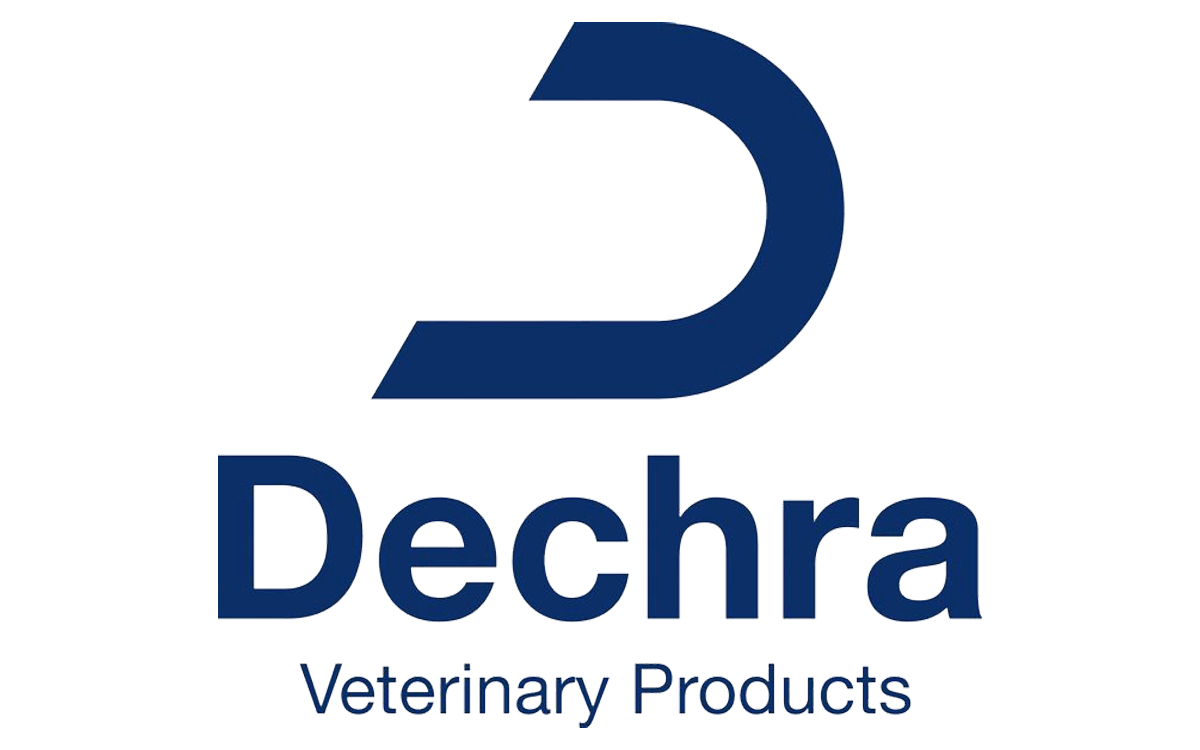
Episode 88
Hormones out of Harmony: Decoding Endocrine Diseases in Pets
with Daniel Langlois
MVC 2024 Preview Series See All Episodes »
Navigating the intricacies of endocrine disorders in pets poses a multifaceted challenge for veterinarians treating these patients. From the elusive nature of diagnoses to the complexities of treatment regimens, understanding and managing conditions like Addison’s, Cushing’s, and diabetes requires a delicate balance and a strong knowledge of endocrinology.
In this episode, we are joined by Dr. Daniel Langlois, a 2024 Midwest Veterinary Conference speaker and clinician who specializes in companion animal endocrinology. He offers listeners a sneak peek at his upcoming CE sessions, which will shed light on common hormonal disorders of small animal patients and offer insights to veterinarians treating these animals.
Episode Guest

Daniel Langlois
DVM, DACVIM
A 2009 graduate of Louisiana State University, Dr. Langlois is the director of Michigan State University College of Veterinary Medicine’s Clinical Innovations Program. He has strong clinical and research interests in companion animal endocrinology and canine hepatology. | Learn More »
Featuring 325+ hours of live and on-demand CE in 25 tracks, 100+ expert speakers, and nearly 200 exhibitors, the 2024 Midwest Veterinary Conference is packed full of opportunities to learn and engage. Registration is now open!
Transcript
Mia Cunningham: Along with my colleague Krysten Bennett, we are joined today by Dr. Daniel Langlois. Dr. Langlois will be speaking and the Pet Animal Endocrinology track at the 2024 Midwest Veterinary Conference, and he’s here today to give us an overview of his sessions.
But before we get to that, I want to congratulate you on your recent appointment as the director of Clinical Innovations Program at Michigan State University College of Medicine. Congratulations.
Daniel Langlois: Yeah, thanks very much. It was a very recent thing. We’ve been trying to get a sort of a clinical trial center going for quite some time, and it looks like we’re finally going to have the the infrastructure in place to do that. So, yeah, we’re pretty excited about it.
MC: So would you mind just giving us a little bit of background about the position itself? And then I guess also kind of your trajectory in veterinary medicine that led you there?
DL: Yeah. So, first and foremost, I’m still a clinician, so I do internal medicine and I did my veterinary training at LSU. I did actually my internship at Ohio State, so I had a little connection in Columbus for a year, and I’ve actually been at Michigan State since 2010 within the internal medicine group there. And I started to partner with a lot of the faculty and our endocrinologist because we have the really big diagnostic endocrine laboratory at MSU as well. And so that kind of spurred my interest in the general endocrinology area. I dabble a little bit in liver disease as well. And several years back we really started to get into clinical research and clinical trial work and we were fortunate enough to have a very large donation recently to the college which actually set the basis for launching this clinical innovations program or clip, as we call it, which in essence is a program designed to enhance clinical trial work and clinical research across our college. And so I have recently taken on that position as well. But I’m still very much a clinician and faculty member within the college as well.
MC: Okay. Well, thank you for sharing that with us. And you will be speaking on Saturday at the MVC, and you’ve got quite a few sessions that you’ll be facilitating for us. If you wouldn’t mind, can you give us an overview of each of them?
DL: Yeah, no problem at all. I’m kicking it off with Addison’s disease, which is actually my favorite disease to talk about. And a lot of my research program is actually focused on improving diagnostics and treatments for Addison’s disease. So I’ll go through some of the basics, but really, I think a lot of what we’ll focus on is disease recognition, but not necessarily the classic cases—some of the cases that are a little bit more challenging for clinicians to recognize in a primary care setting. And then I think the other big thing that clinicians are often challenged by are the really high costs of treating this disease. And so we’ve done a lot of research. We’re even doing some studies right now in which we’re trying to basically modify some of the dosing protocols for DHCP. And so I have a lot of slides on that and some evidence showing the comparative aspects of using label those protocols versus a variety of basically non label those protocols. So I think it’s hopefully pretty, you know, clinically applicable and relevant for everybody.
We’re also going to touch upon Cushing’s disease as well. Kind of similar, I’ll have lots of case examples and we’ll talk a lot about the comparative aspects of all the different diagnostic tests that are available. It doesn’t really matter which test you use. There’s a lot of controversies now about how you best monitor Cushing’s disease. So we’ll talk about the studies that are out there for that and kind of how we approach it. And I don’t know if there’s necessarily a right answer, but we can at least show some different examples of how different faculty within our college are approaching it.
And another hour that I’ll speak on is feline adrenal gland disease, which I think is something that’s often not thought a lot about, at least in primary settings. But we actually see a lot of cats with adrenal tumors. And unlike dogs in which adrenal tumors are typically secreting cortisol, we see that adrenal tumors secreting a lot of other things aldosterone, secreting tumors, sex hormone secreting tumors, and obviously a lot of unique clinical manifestations because of that. And so we’ll go through a variety of cases and talk about how we approach diagnosis and treatment for all of those as well. And then we’ll talk about diabetes. It’s always a popular topic and there’s a lot more information now about new insulins, too. Joe’s a new, you know, an ultra concentrated glargine. There is a lot of discussion about that’s the cat, the new oral drug that can be used to potentially treat feline diabetes. So we’ll talk a lot about those. We’ll talk about some of the field trials that are now out there for the cat as well. So I think, again, a lot of good information.
And then my last talk will actually be on the approach to hypocalcemia. And I think anybody that’s probably managed a hypoglycemic patient has probably utilized our diagnostic lab for measuring all of the hormones that control calcium homeostasis and the malignancy profiles and vitamin D profiles. And that one’s predominantly a case-based lecture. We use a lot of different cases to highlight different aspects regarding physiology, diagnosis and treatment. And we end with what I call the one case that is everything you need to know about calcium in one case. It’s a really complicated case. It kind of highlights all the aspects of calcium homeostasis and calcium physiology and how to approach these cases. So another, I think, useful hour for everybody.
MC: So it sounds like you’re using a lot of case-based studies for your presentations. So given that, can you talk to us a little bit about your presentation style? Is it interactive?
DL: Yeah. Yes, it’s a great question. So I do show a lot of cases and I do use Pull everywhere software. And so I do try to involve the audience in answering questions about the cases, what they think the test results are going to be or what the outcome is going to be. And so it’s really simple. You just basically text a response to a number. It’s nothing complicated. I’m not a tech guy, but I could even figure out poll everywhere. So I do use that in most of my lectures, and I generally have about seven or eight questions in each one. That kind of gauge either, you know, what’s being done commonly in practice versus what might be going on with one of the cases, and I do use a lot of cases and these are all real cases that we see either through our endocrine lab or through our internal medicine service. And so we have a lot of great information, you know, from real live cases.
MC: Yeah, I can vouch for Poll Everywhere. I use it quite a bit and it’s a lot of fun. It’s user friendly too. So we have identified on our end, Dr. Langlois, that your target audience is going to be veterinarians. Is that true, or is this open to other veterinary professionals as well?
DL: You know, it is it’s predominantly of most relevance for practicing veterinarians. I think there’s some probably useful information in there for technicians, especially those that might work in an E.R. setting or in an internal medicine setting. But mainly it’s geared towards veterinarians.
MC: Awesome. So if any of our attendees would like to get in touch with you before or after the conference, would you be comfortable sharing your contact information that we can include in the show notes or even as part of the podcast?
DL: Yeah, no problem at all. My email is probably the easiest way to reach me. Sometimes my responses might be a bit delayed, but emails usually the most reliable.
Krysten Bennett: Do you have a social media presence, or does your clinic?
DL: I do not, but the MSU Veterinary Medical Center does. They have Facebook, Instagram, all of that.
MC: Okay, well, there anything else you can think that you wanted to include?
KB: I am curious. You were only here in Ohio for a year, right? But did you make it to the Midwest Conference while you were here?
DL: I did not make it to the Midwest Conference. This will be my first time.
MC: We’ve got a virgin! Welcome, welcome.
DL: (laughs) You know, Dr. Bob Sherding actually reached out to me, and I know he’s retired from Ohio State now, but he was still there when I was an intern there back in 2009. So I’ll see a few familiar faces, I imagine.
KB: Great. Well, we look forward to meeting you.
MC: It’s great chatting with you. Thank you for your time.
DL: Yeah, no problem. You guys have a nice day. If you need anything, just let me know!
Dr. Langlois will speak on Saturday, February 24th, in the Pet Animal Endocrinology track (Sessions 542 to 547).
Special thanks to MVC Gold Sponsor Dechra Veterinary Products for supporting this track.

